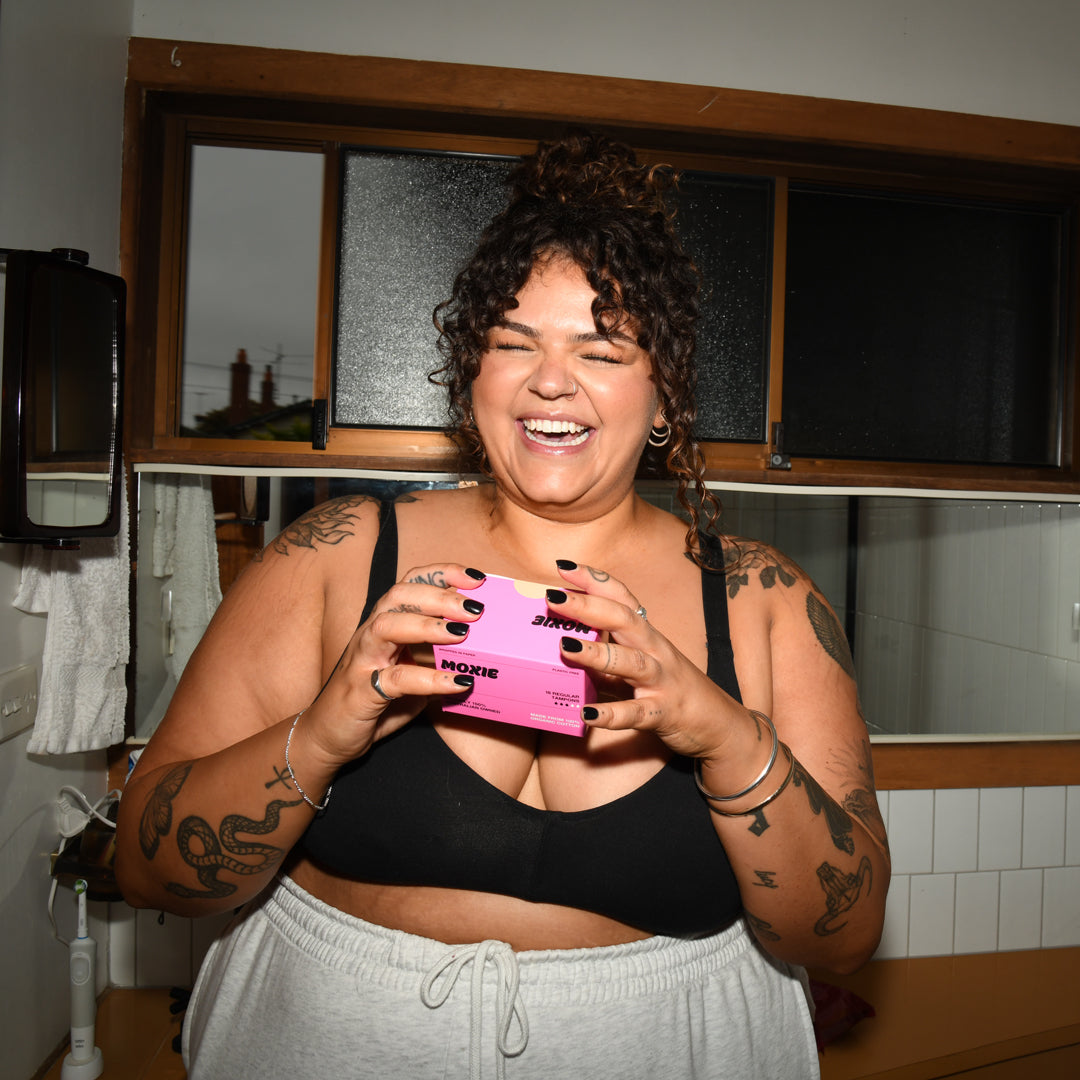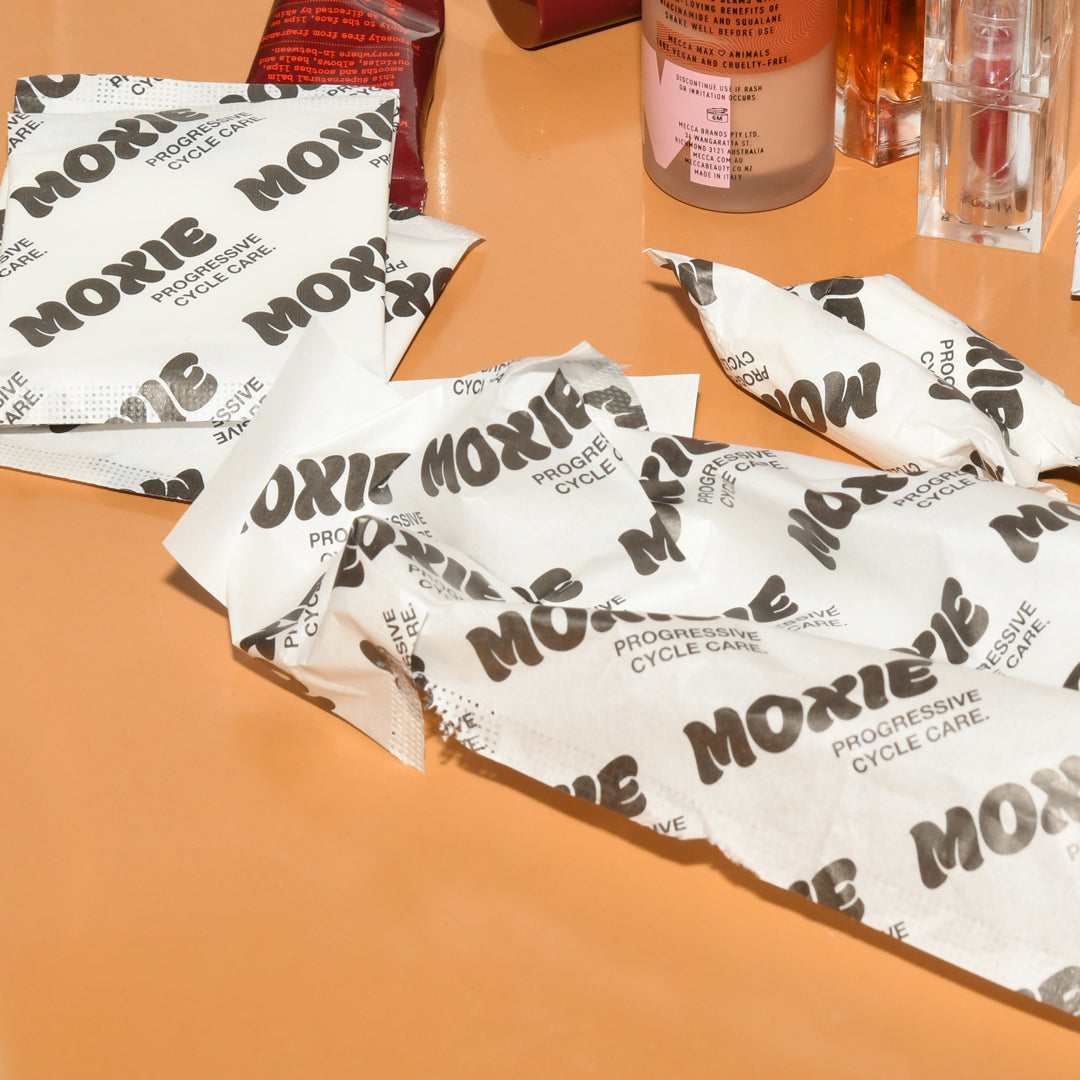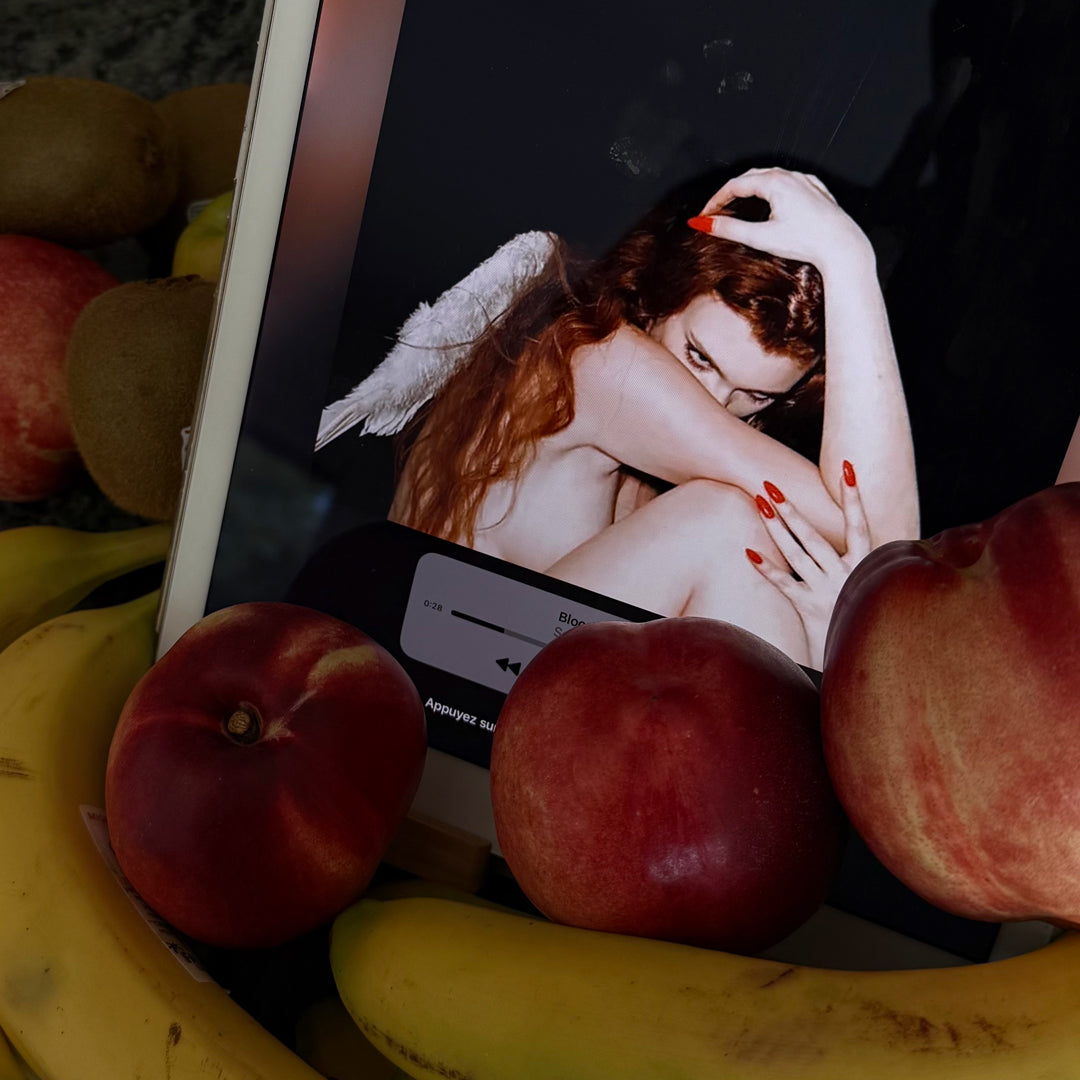Your most frequently asked questions on TikTok - Part 2.

Photo by Marek Okon on Unsplash.
There's much to learn about periods and understanding how our cycles work and luckily, Miss Moxie has the answers. Here are some of the most common qns you have about your intimate health on @MoxieHQ TikTok (see Part 1 for more).
HOW DO I KNOW IF I HAVE A HEAVY PERIOD?
Here are some of the things to look out for that may indicate you have an unusually heavy flow (a.k.a 'menorrhagia'):
- having to change or soaking through your tampon or pad every one - two hours (or less)
- clots in your period flow that are around the size of an Aussie 50c coin
- having to get up during the night to change your pad/tampon
- limiting your lifestyle as a way of managing a heavy period
- a period/bleeding that lasts for more than 7 days
If the above sounds familiar to you, then it's worth making an appointment to see your Doctor in case there's something underlying going on that needs treatment.
WHY IS THERE PERIOD BLOOD WHEN I WIPE BUT NOTHING ON MY PAD?
There's really nothing to worry about here, Moxette. This likely just means that your period is light, or it may even mean that you're experiencing spotting*. You may be able to size down your period care to a lower absorbency product as a result (like a liner) but if it's just the start of your cycle, be prepared as your flow may get heavier at any moment.
* There are many reasons you may be experiencing spotting - if you're unsure or concerned, please check in with your Doctor.
MY PERIOD BLOOD IS PINK, IS THAT NORMAL?
The colour and even the texture of our period blood can tell us a lot about what's going on down there. Your flow might be pink just before the onset of your period, or as it’s ending (it’s generally a mix of period blood and cervical fluid) but it might also be caused by weight loss, an unhealthy diet or an underlying condition like anaemia. It can also sometime indicate implantaion bleeding if you're pregnant (though this looks more like spotting and is unlikely to be a full bleed).
If you’re on the contraceptive pill, it also might explain a pink period, as it lowers estrogen levels. If you’re experiencing irregular pinkish spotting that isn’t linked to your period, it may be a sign of cervical cancer but DON’T STRESS, it could be a number of things.
Either way, a pink period is a sign to get checked by your doctor, just to be sure there's nothing underlying going on that needs attention.
HOW LONG AFTER DISCHARGE WILL I GET MY FIRST PERIOD?
There's no magic rule, sorry Moxette. Everyone experiences puberty differently so there is no way to know exactly when your period will come after you start seeing discharge. Generally speaking it's around 6mths - 1year, but for some people it may take longer.
HOW DO I TELL MY MUM I GOT MY PERIOD?
Be confident bestie, there's nothing at all to be embarrassed about, and no doubt Mum (or Dad, or your sister, Guardian, or whoever your primary carer is), is there to support and help you through it. Say, "Mum, I think I got my period - can you help?" Mum is expecting it, promise.
DOES YOUR PERIOD STOP IN WATER?
Your period doesn't actually stop when you're in the water, but it doesn't flow at the same rate as it would if you were out of the water, simply due to the pressure that the water puts on your vagina when you're in it - it's just gravity, at play, really.
Once you step out of the water, that pressure is relieved and your period will flow as normal again. It's also worth remembering that your period isn't a constant stream of flow anyway - it may be that when you're in the water you may happen to be bleeding right at that moment anyway, leading you to think that your period has 'stopped'.
WHAT IF YOUR PERIOD CUP OVERFLOWS?
Period cups can hold quite a bit of flow - around 2.5 times the volume of a tampon - so if yours overflows, you've either left it in for too long (remember to remove and empty it at least every 8 hours), or, you it may be a sign you have a heavy period - if so, get checked by your doctor.
Otherwise, it's pretty unikely your cup will overflow. Just be sure to remove it slowly and don't squeeze it too much when it's on the way out. We also recommend removing it over the toilet or in the shower just in case you experience any unexpected spills.
CAN VIRGINS USE TAMPONS?
The short answer is yes, as long as you have a period and are comfortable with inserting something into your vagina. People have different ideas about what 'virginity' means, but generally it refers to having sex (with another person) for the first time. Though, some people with vaginas are concerned about whether or not inserting a tampon would 'tear' their hymen (the thin layer of tissue that covers, partially covers or surronds the vaginal opening) - something which is often associated with having sexual intercourse for the first time and 'losing your virginity'.
In many instances the hymen is often already stretched and torn away from regular activities like playing sports, and in some cases, people may even be born without one - so really, it shouldn't be a measure of anything.
Either way, caring for your period and inserting a tampon has nothing to do with having sex - so whilst it may tear or stretch your hymen, your period will actually do that anyway - your hymen will stretch to allow menstrual flow to pass through (isn't it amazing?!).
Your period, your body, your choice, Moxette.
WHY IS MY DISCHARGE BROWN?
Brown bits in your discharge usually indicates some older blood from your uterus is making its way out and is really nothing to worry about (though of course if you're worried, see your Doc). If you haven't yet experienced your first period, this could be a sign it's on the way very very soon (like, days away), so keep some pads handy just in case.
HOW DO YOU STOP DISCHARGE?
The colour and texture of your discharge can tell you a lot about what's going on down there, Moxette, and if all is as it should be, it's the sign of a healthy, happy vagina! Discharge is your vagina's way of cleaning itself and keeping any unwanted bacteria out, so you can't and don't want to stop it (sorry besties). It's a totally normal bodily function, but if it really bothers you, you could wear a thin liner in your undies to absorb it on the days when you feel like you have a little more (tip: it will change throughout the month - some days you will have a little, a lot, or none, depending on where you're at in your cycle).
HOW DO YOU SHAVE DOWN THERE?
There are no set rules, and also nothing or no-one that says you have to shave your pubic area - this is totally personal preference and in fact, pubic hair exists to protect the vagina from unwanted bacteria, so there's a fair reason for keeping it! Though if you did want to shave, Miss Moxie recommends lathering up with a clean sponge and some mild, unscented pH neutral soap (on the vulva/outside only), and with a new, clean razor, shave in the direction the hair is growing to help avoid any cuts or rashes. If your hair is longer, you may opt to trim it prior.
IS IT NORMAL FOR THE OUTSIDE (VULVA) TO BE ITCHY?
Shaving the vulva can cause the skin to itch as the hair grows back, but itchniness of the vulva can also be caused by STIs, psoriasis or other skin-related infections, so if itching persists for longer than just a casual scratch, it's definitely worth seeing your doctor for a check up.
MY INNER LABIA ARE LONGER THAN MY OUTER LABIA, IS IT NORMAL?
Yes! Vulvas come in all different shapes and sizes; some have longer inner labia, some longer outer labia, some have one side longer than the other - literally no two are the same (just like our fingerprints) but it's all normal - please don't let anyone tell you otherwise or make you feel insecure about it.
HOW DO YOU PREVENT UTIs?
Urinary Tract Infections, a.k.a. UTIs, can be pesky, painful, and recurring if not treated properly. Please do see your doctor or pharmacist if you experience symptoms and do suspect you have one, but here are some things you can do to help prevent getting them in the first place:
- always be sure to pee after having sex or any kind of intimate play. Bacteria can easily enter the vagina and disrupt your pH, so you want to be flushing that our post play (peeing is fine - no douching, Moxettes!)
- wipe from front to back to help stop bacteria from your anus entering your vagina
- don't use scented soaps or scented period products
- wear cotton underwear (avoid synthetics)
- change out of wet bathers or damp gym clothes as soon as you can
- drink lots of water (if you suspect you may have a UTI, opt for cranberry juice).
GOT MORE QNS? JOIN THE CONVO AND OUR 800K+ STRONG COMMUNITY @MOXIEHQ ON TIKTOK
PSA: The information posted here and on @MoxieHQ TikTok is intended to educate and inform only, and does not constitute or replace a personalised diagnosis from a medical professional. If you're ever concerned about anything relating to your intimate health, please make an appointment to see your Doctor.



